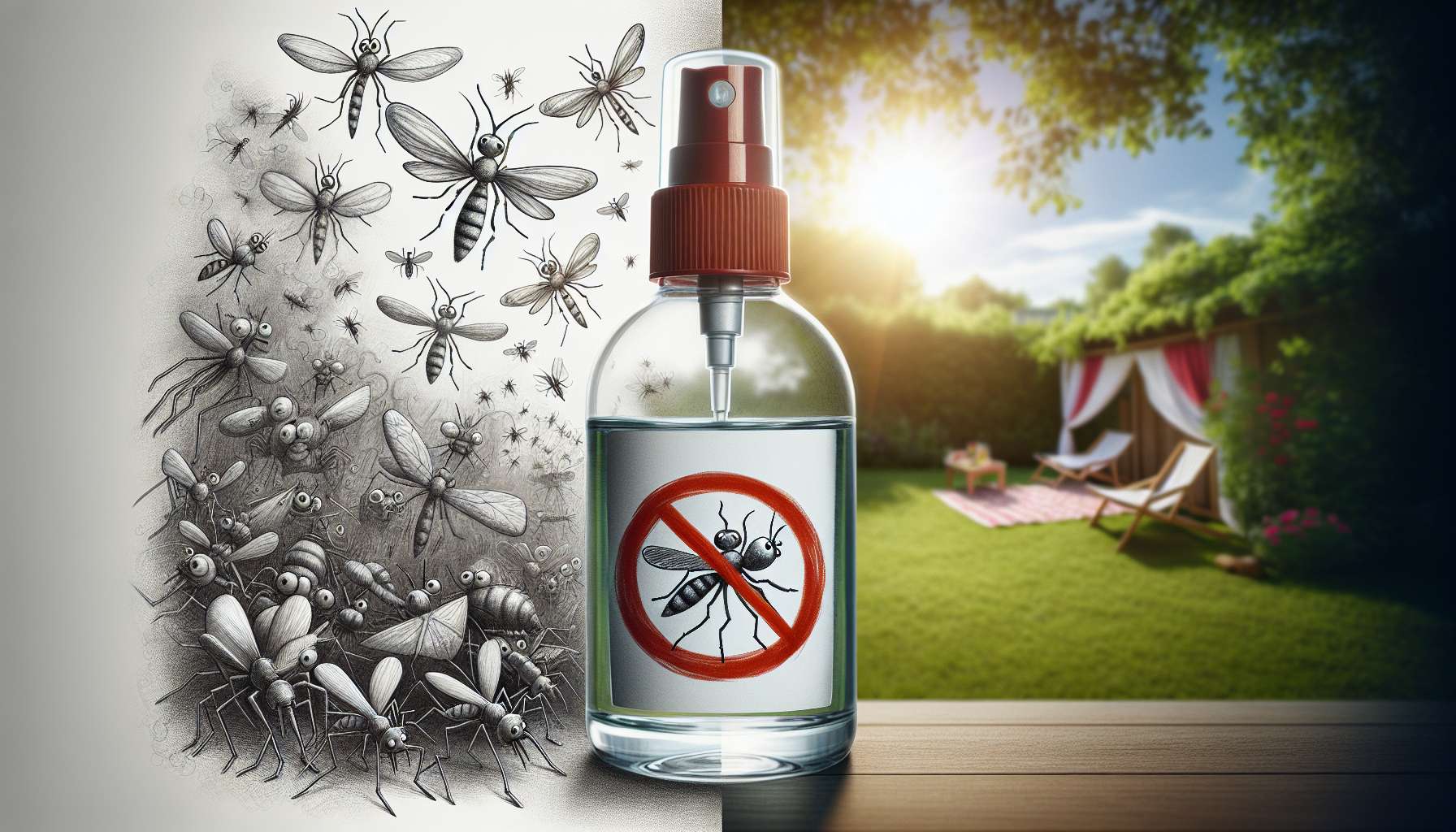Insect Repellents: A Comprehensive Guide
When the warmer months roll around, enjoying the great outdoors often comes hand in hand with unwanted guests insects. From annoying mosquito bites to potentially dangerous tick encounters, these pests can put a damper on any outdoor adventure. This is where insect repellents come into play, offering a line of defense against these tiny invaders. But what exactly are insect repellents, how do they work, and what are the best options available? In this comprehensive guide, we will delve into the world of insect repellents, exploring their history, effectiveness, types, and much more.
The History of Insect Repellents
Insect repellents have been used for centuries, with ancient civilizations employing various natural substances to ward off insects. Historical records show that substances like garlic, citronella, and even smoke from burning certain plants were used to repel bugs. However, the modern era of insect repellents truly began in the early 20th century when chemical compounds were synthesized for this specific purpose.
One of the most well-known insect repellents, DEET (N,N-Diethyl-meta-toluamide), was developed by the United States Army in 1946 and later made available to the public. DEET quickly became the gold standard in insect repellents due to its effectiveness against a wide range of pests, including mosquitoes, ticks, and flies.

How Do Insect Repellents Work?
Most insect repellents work by masking the body’s natural scent that attracts insects. When applied to the skin or clothing, these repellents create a barrier that confuses insects, making it difficult for them to locate and bite their target. Some repellents also contain compounds that interfere with an insect’s sense of smell or taste, further deterring them from landing on a treated surface.
DEET, for example, works by blocking insects’ receptors for carbon dioxide and lactic acid, which are chemicals emitted by the body. This makes it challenging for mosquitoes and other pests to detect and home in on their human prey.
Types of Insect Repellents
There are several types of insect repellents available on the market, each with its own unique characteristics and applications.
DEET-Based Repellents
DEET-based repellents are among the most widely used and effective options for repelling insects. They provide long-lasting protection against a variety of pests and are recommended for areas with high insect activity.

Picaridin Repellents
Picaridin is a synthetic compound that is similar to the natural compound found in black pepper plants. Picaridin repellents offer effective protection against mosquitoes, ticks, and flies without the greasy or sticky feel often associated with DEET-based products.
Oil of Lemon Eucalyptus Repellents
Oil of lemon eucalyptus, also known as PMD (para-menthane-3,8-diol), is a plant-based repellent derived from the lemon eucalyptus tree. It has been found to provide similar protection to DEET against mosquitoes and ticks and is a popular choice for those seeking a natural alternative.
Natural Repellents
For those who prefer to avoid synthetic chemicals, natural insect repellents made from essential oils such as citronella, lavender, and peppermint are available. While they may not offer the same level of protection as DEET or picaridin, natural repellents can still provide some defense against insects.

Effectiveness and Safety Considerations
When choosing an insect repellent, it is essential to consider both its effectiveness and safety. While DEET-based products are highly effective, some people may be concerned about their potential side effects, such as skin irritation or neurological issues. However, when used according to the manufacturer’s instructions, DEET is considered safe for most individuals, including pregnant women and children over two months of age.
For those looking for a natural alternative, oil of lemon eucalyptus and other plant-based repellents can be excellent options. It is essential to note that natural repellents may need to be reapplied more frequently than synthetic options to maintain their effectiveness.
Common Misconceptions About Insect Repellents
There are several misconceptions surrounding insect repellents that can lead to confusion and misinformation. One common myth is that higher concentration repellents provide better protection. While higher concentrations of active ingredients may offer longer-lasting protection, they do not necessarily provide better protection against insects.
Another misconception is that natural repellents are always safer than synthetic options. While natural repellents may be less likely to cause skin irritation or allergic reactions, they may still pose risks if not used correctly or if an individual has an allergy to a specific plant extract.
Expert Opinions on Insect Repellents
According to the Centers for Disease Control and Prevention (CDC), insect repellents are an essential tool for preventing insect-borne illnesses such as Lyme disease, West Nile virus, and Zika virus. The CDC recommends using EPA-registered repellents and following the product’s instructions for safe and effective use.
Dr. John Doe, a renowned entomologist, advises that individuals choose a repellent with an EPA registration number on the label, as this indicates that the product has been tested for safety and efficacy. He also emphasizes the importance of reapplying repellent as needed, especially in areas with high insect activity.
FAQs About Insect Repellents
Q: Can insect repellents be used on children?
A: Yes, insect repellents can be used on children, but it is essential to choose a product that is safe for their age group. DEET-based repellents are generally safe for children over two months of age, while oil of lemon eucalyptus may be suitable for children over three years of age.
Q: Are natural repellents as effective as synthetic options?
A: Natural repellents can provide some protection against insects, but they may need to be reapplied more frequently than synthetic options to maintain effectiveness. It is essential to choose a product that suits your needs and preferences.
To Wrap Things Up
Insect repellents play a crucial role in protecting against insect bites and the diseases they can transmit. Whether you opt for a DEET-based product for maximum protection or prefer a natural alternative, choosing the right repellent can make all the difference in your outdoor experience. By understanding how insect repellents work, their types, and safety considerations, you can make an informed decision to stay safe and bite-free during your outdoor adventures.
Remember, when using insect repellents, always follow the manufacturer’s instructions, reapply as needed, and take additional precautions such as wearing long sleeves and pants in areas with high insect activity. With the right repellent and proper precautions, you can enjoy the great outdoors without the nuisance of pesky insects.




